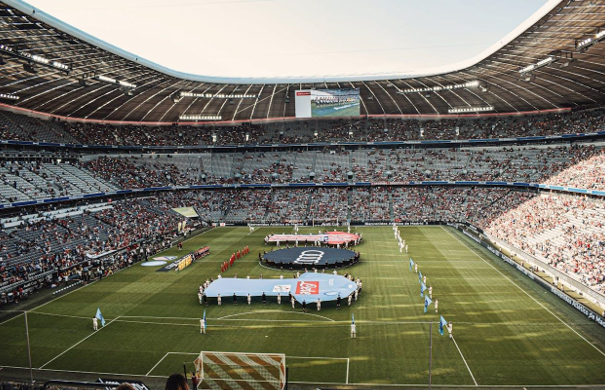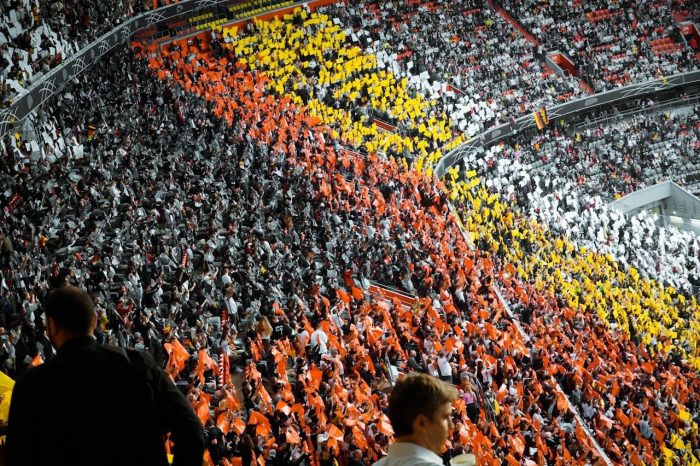
Does the new Champions League format make it better?
October 11, 2024 4:49 pm Leave your thoughtsThe UEFA Champions League kicked off on July 9, 2024. However, it was marred by controversy because of the new format. The format was effective during the 2024/25 UEFA Champions League season. Facilitators have been getting a lot of stick from the larger football community, including fans, players, coaches, and managers.
But what’s all the fuss about the new format, and is it better than the previous one? Keep reading to find out.
The Latest Champions League Format
The New Champions League Format presents a new dynamic. It might change one of the most popular football leagues in the world, the UEFA Champions League. While fronted to provide a fairer system, each match holds adequate weight to the overall table outcome.
How Does the New Format Work?
The new format adopts a Swiss-style system, detaching from the group stage system that has been in use for the past 33 years. Instead of a group stage, the 36 qualifying teams will play a league phase.
In the league phase, teams will play eight matches: half of the matches at home, and the remaining half away. This means they no longer have to play 3 teams home and away, totalling 6 matches.
The UEFA seeding community will use four seeding pots to determine what teams play against each other. Each team will play two opponents per seeding pot, with one fixture played at home and the other away.
Why The New Format
The new format allows clubs to test their might against more opponents and allows more teams to go head-to-head against each other. The changes didn’t impact the football betting odds, the usual suspects are among the favourites but maybe we’ll see some big names go out early.
How do Clubs qualify?
Qualification for the UEFA Champions League is similar to the previous. The teams’ rankings in domestic competitions and their association coefficient determine qualification for the Champions League. While that is clear, it still doesn’t explain which teams will get the four extra slots.
According to UEFA, they will use the framework below to allocate these slots:
- The first slot: To get the first extra slot, a club must rank third in the league linked to the fifth-ranking association of UEFA’s access list.
- The second slot: The second extra slot will go to the club that finishes fifth in their domestic league through the usual championship qualification process. This usually consists of four qualifying rounds.
- The third and fourth slots: UEFA refers to slots three and four as European Performance Spot. UEFA will award these spots to the associations having the best club performance for their domestic leagues.
The organization will use the total number of club coefficient points for each association to determine the association club coefficient. It will divide the total by the number of clubs in the association.
The two associations with the highest association club coefficient will fill the remaining two slots. These two slots will be taken by the clubs ranked next-best in their domestic leagues behind the already-qualified clubs.
How Will the Knockout Phase Change?
The phase ends after all teams have played their eight matches. The league table will determine which teams proceed to the knockout phase, with the top 8 teams automatically qualifying for the round of 16.
The teams ranking 9th to 16th on the league table will play off against those ranking 17th to 24th, with each team playing a home and away match with rival teams. The 8 teams that prevail will proceed to the round of 16, where they will be seeded to compete in the round of 16 until the finals.
What Are the Pros and Cons of the New Format?

The new Champions League format elicits mixed reactions from the football community, splitting it into two camps: one supporting it and the other completely opposing it.
Let’s examine the new format’s pros and cons to determine which side of the divide to support.
The Pros
- The league is now accessible to more teams thanks to the new format
- A single league stage promotes fairness
- Teams now have direct qualification to the knockout phase
The Cons
- Increased player fatigue might lead to poor performance
- More games played means an increased risk of injuries
- There’s also a possibility of top clubs dominating and gatekeeping the league
Conclusion
It’s hard to determine whether the new Champions League format will improve the league experience or compromise it. Fans get to enjoy more games and have their favorite teams go toe-to-toe against each other.
However, players must work harder to play all the games and remain competitive in other leagues. Whether the new format is better depends on your point of view, but it’s certainly good news for football fans and the sports betting collective.
Categorised in: Championship Blog
This post was written by Powered by thefootballforum.net
